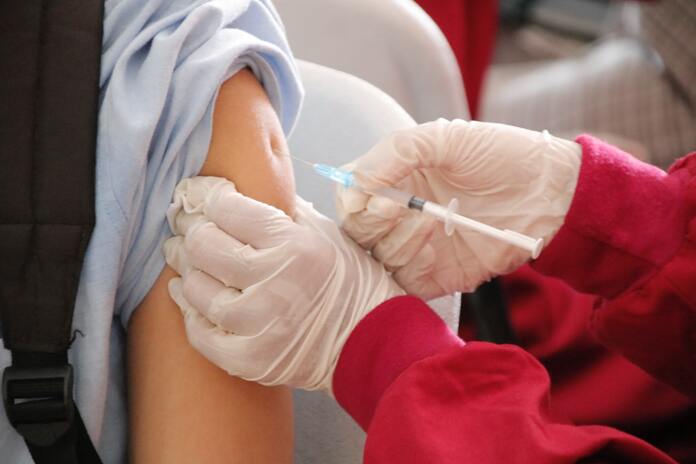Pfizer Stock (NYSE:PFE)
When pundits discuss mRNA vaccines, they almost always fall into one of two camps: either they are wholly in favor of them or wholly against them. In order for investors to get a fair assessment of the trajectory of Pfizer’s (NYSE:PFE) stock, this article makes an effort to take into account evidence from both sides of the controversy. Investors probably don’t need to be reminded that the sale of mRNA vaccines accounts for a sizable portion of the company’s earnings. Stockholders are unquestionably hoping that this continues so that they can continue to take advantage of respectable dividends and an upward trend in Pfizer stock price. So, it is crucial that all facts be looked into in order to make the best conclusions.
Good
Prior to the launch at the end of 2021, a sizable study was conducted to evaluate the efficacy and establish the safety profile of Pfizer’s vaccine. 43,252 people took part in this study and were split into two groups: those who received the vaccination, and those who received a placebo.
In conclusion, it was found that in people 16 years of age or older, the vaccine was 95% as efficient for avoiding Covid-19 as compared to the placebo. Regarding safety, more vaccine recipients than placebo receivers (27% and 12%, respectively) reported any adverse event. However, the majority of these estimates take temporary side effects like pain at the injection site into account. Additionally, both the immunization cohort and those who received a placebo experienced more severe adverse effects.
Further research has been done, and these investigations substantially confirm the preliminary Pfizer trials. “Adjusted estimates of vaccine effectiveness after 7 days or longer after the second dose were 95.3 percent,” according to the peer-reviewed research released on May 5th. The paper came to the conclusion that COVID-19 vaccination with the Pfizer product could aid in pandemic control. It is also significant that this publication was not funded, however, it must be noted that some of the researchers who contributed to this work were Pfizer investors.
On May 13, 2021, more reliable research was published. There were no disclosed conflicts of interest with the contributors in this study. In essence, the researchers came to the conclusion that receiving the vaccine was linked to a considerable decrease in symptoms and increased protection against serious illness.
Myocarditis and pericarditis can result from COVID-19 infection, and in a recent study, 5% of patients experienced myocarditis and 1.5% experienced pericarditis within six months after contracting COVID-19. So, it is reasonable to assume that immunization would be a successful preventative measure against these illnesses.
At this time, I’d also like to emphasize the CDC’s recommendation that “COVID-19 vaccinations are safe and effective.”
Bad
Any doctor will emphatically tell you “no” when you ask if there are any drugs that have no adverse effects. Early studies have shown that even a placebo occasionally causes an unfavorable reaction. However, a placebo’s side effects can occasionally be rather severe. Six recipients of the placebo were later diagnosed with lymphadenopathy in the research written in collaboration with Pfizer.
Regarding the product’s side effects, Pfizer has kept track of them during the course of its usage. I suggest concentrating on one rather unimportant observation for this essay.
Shingles
Ramsay Hunt syndrome, a disorder brought on by the chickenpox virus reawakening, appears to have occurred in Justi Bieber. This is a little strange because the immune system normally deteriorates with age, making this illness more common in the elderly. Because a similar claim has come out of Korea, I have to admit that I’m starting to think that this particular shingles illness is a pandemic among contemporary pop singers. It appears that Leeteuk of Super Junior has admitted to having shingles and will be taking a vacation from singing his hit songs.
It would seem that shingles are becoming more common. Perhaps a greater number of people are being vaccinated against chickenpox, which over time results in a lowering of protection as people age. Or perhaps more people are immunocompromised, making them more vulnerable to infection by this pervasive virus. There are also claims that COVID infection increases the risk of developing shingles.
One of Japan’s 86 famous national universities, Kochi University, did a study on the worrisome growth in the occurrence of shingles in that country. So let’s assume that this university has a respectable reputation. Professor Shigetoshi Sano, a seasoned expert in original research, also served as the project’s principal investigator. His paper explains how the presence of encoded spike protein is closely correlated with the concentration of the shingles virus in lesions.
Now, the results of Professor Sano’s study do not specify why or why encoded spike protein causes shingles. His study suggests a correlation rather than a causal relationship between the mRNA vaccination. We need to go to none other than the renowned Institut Pasteur in France for research that suggests a causal connection. Their study demonstrates that the COVID-19 spike protein inhibits interferon 1, a vital immunological protein that aids in the body’s defense against viruses. It makes intuitive sense that a virus would act in this manner; otherwise, how could it spread?
But are we to accept that the mRNA vaccination codes for the virus’s interferon 1 suppressor? We must take into account data from The Massachusetts Institute of Technology (MIT), which has been ranked as the top university in the world for 2022–2023, to determine the answer to this issue.
According to the MIT study’s conclusion, “mRNA vaccinations may raise the chance of contracting infectious illnesses.” Vaccination “induces a severe disruption in type I interferon signaling, which has various detrimental effects on human health,” according to the MIT paper.
If this were the case, then we would anticipate that there would be a direct correlation between the number of immunizations and the severity of COVID-19 infections, wouldn’t we?
Cleveland Research
A Cleveland study suggests that this is the case. In order to ascertain whether the bivalent Covid-19 vaccines were still effective as of the study’s end on December 12, 2022, the Cleveland Clinic surveyed over 51,000 employees. In conclusion, the researchers looked at the likelihood of COVID-19 reinfection following a series of shots. The outcomes are displayed below.
The data reveals an especially shocking conclusion. The data demonstrate unequivocally that illnesses were more common among workers who got more vaccines. Nonetheless, it should be noted that the manuscript is still in pre-print and undergoing peer assessment.
Efficacy issues
It makes sense, in my opinion, that many people who received the shot did so in order to avoid infecting their old and vulnerable relatives. Regrettably, there are concerns about Pfizer’s vaccine that blocks this kind of transmission. A Pfizer executive recently admitted that the business has no proof that the mRNA vaccines are beneficial in this area during a discussion with a European Union parliamentary inquiry.
In reality, research from none other than Harvard University demonstrated that, unlike popular belief, the prevalence of COVID rises as a population’s vaccination rate rises. “At the country level, there appears to be no clear association between the percentage of people fully vaccinated and new COVID-19 cases in the last 7 days,” their research, which incorporates data from millions of infections from 68 nations, states. In fact, the trend line indicates a marginally positive correlation, indicating that the number of COVID-19 cases per million persons in nations with greater vaccination rates.
Summary There is currently a sizable body of evidence supporting the effectiveness of Pfizer’s mRNA vaccines, and there is also evidence to the contrary. Investors should carefully analyze the evidence on all sides before making investment decisions. Pfizer stock is down 21% year-to-date.
Featured Image: Unsplash @ isengrapher















